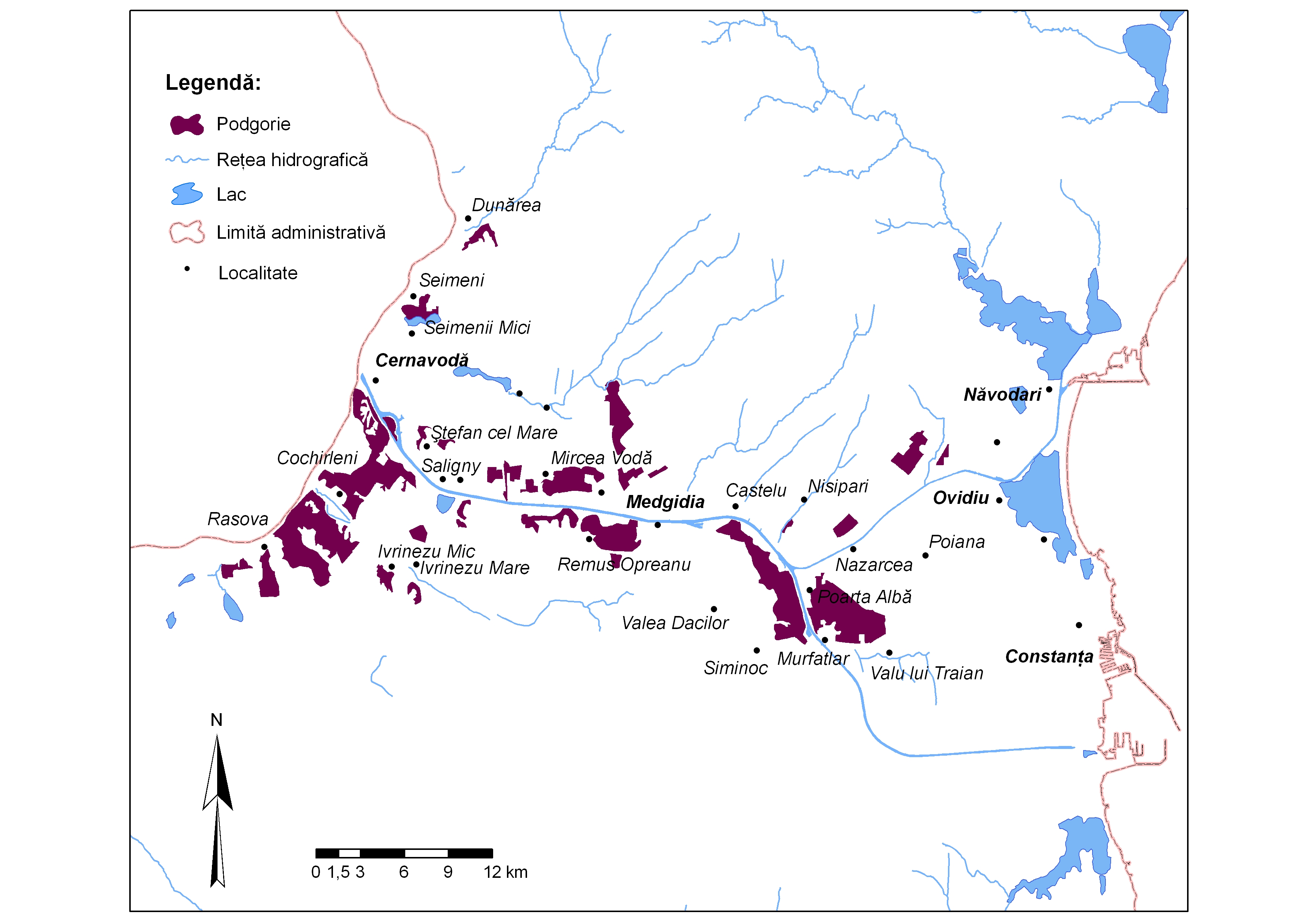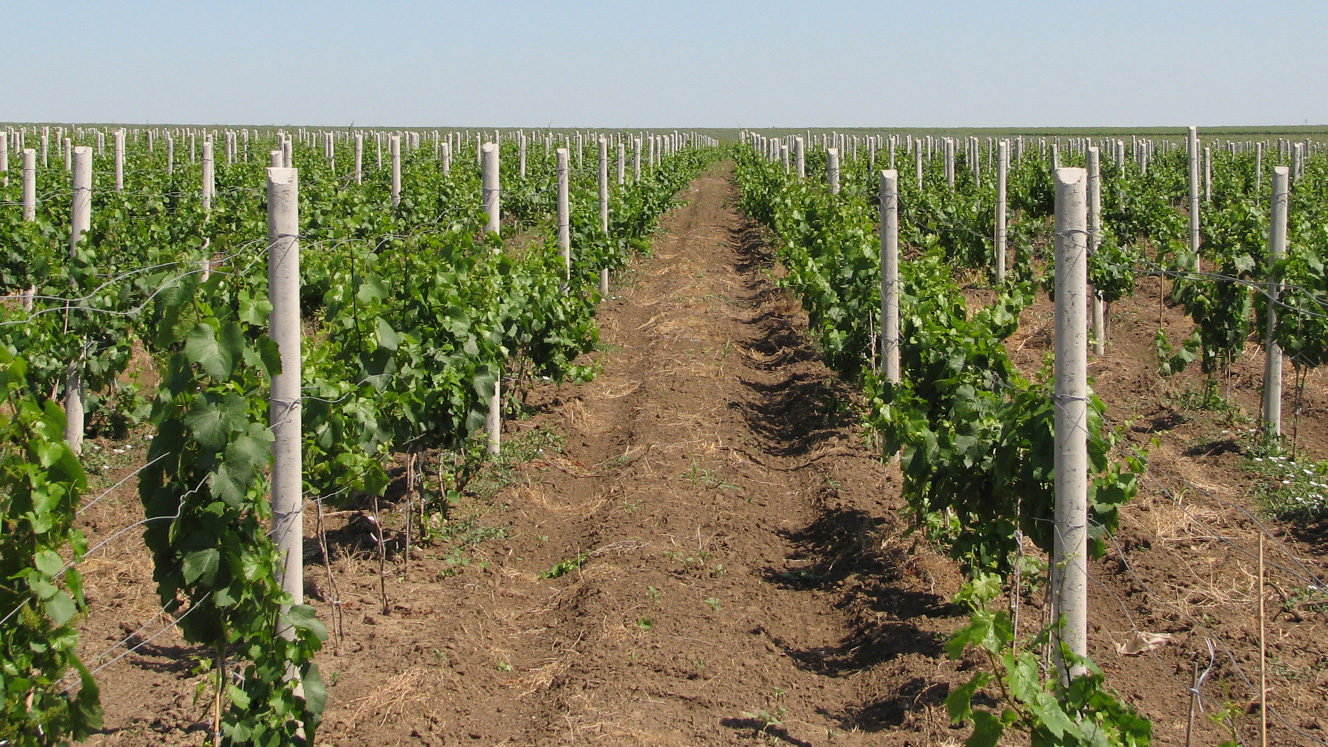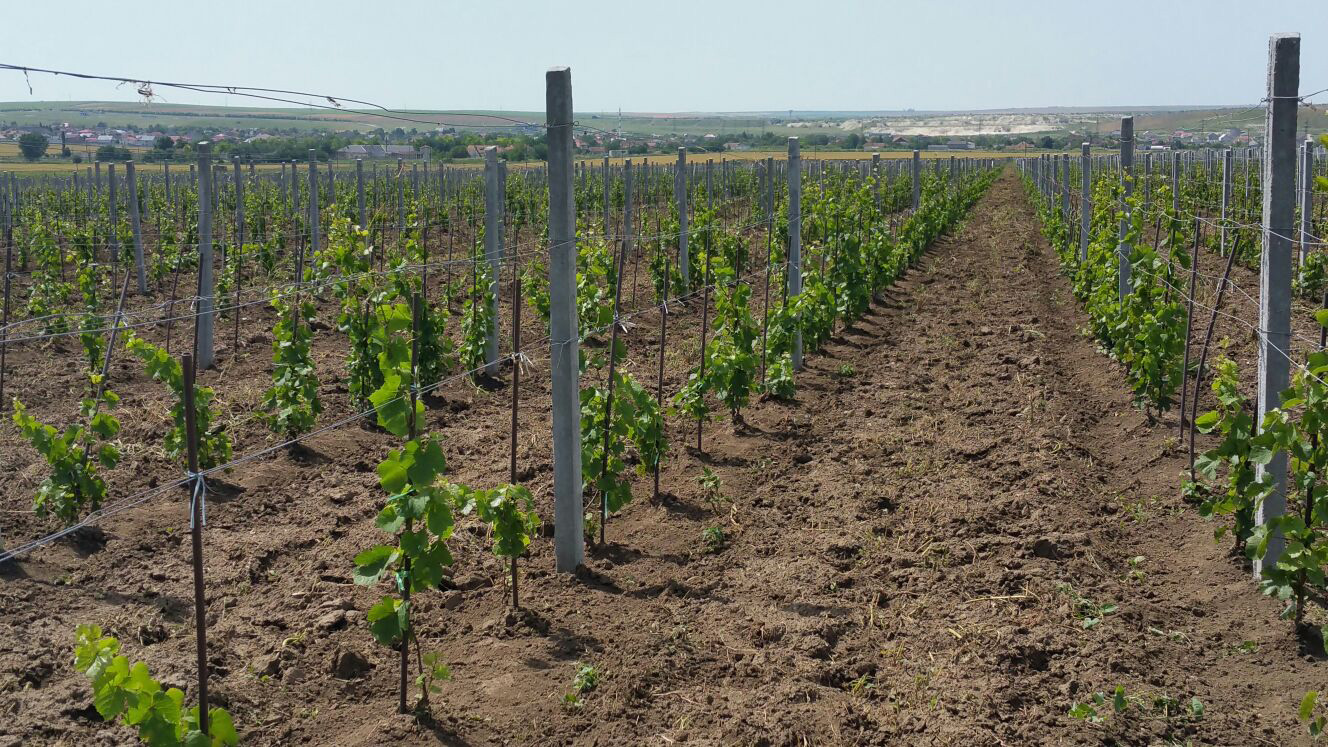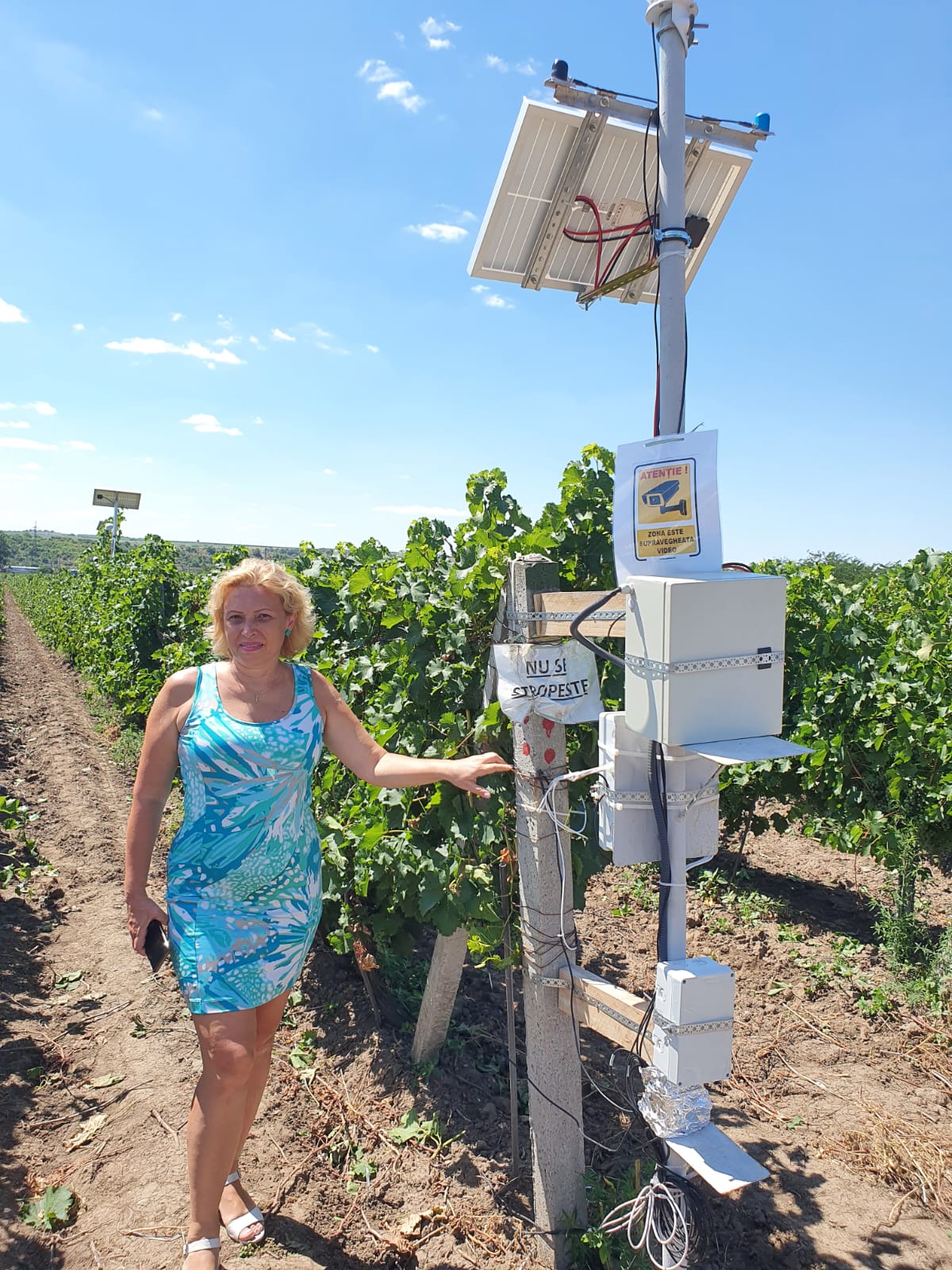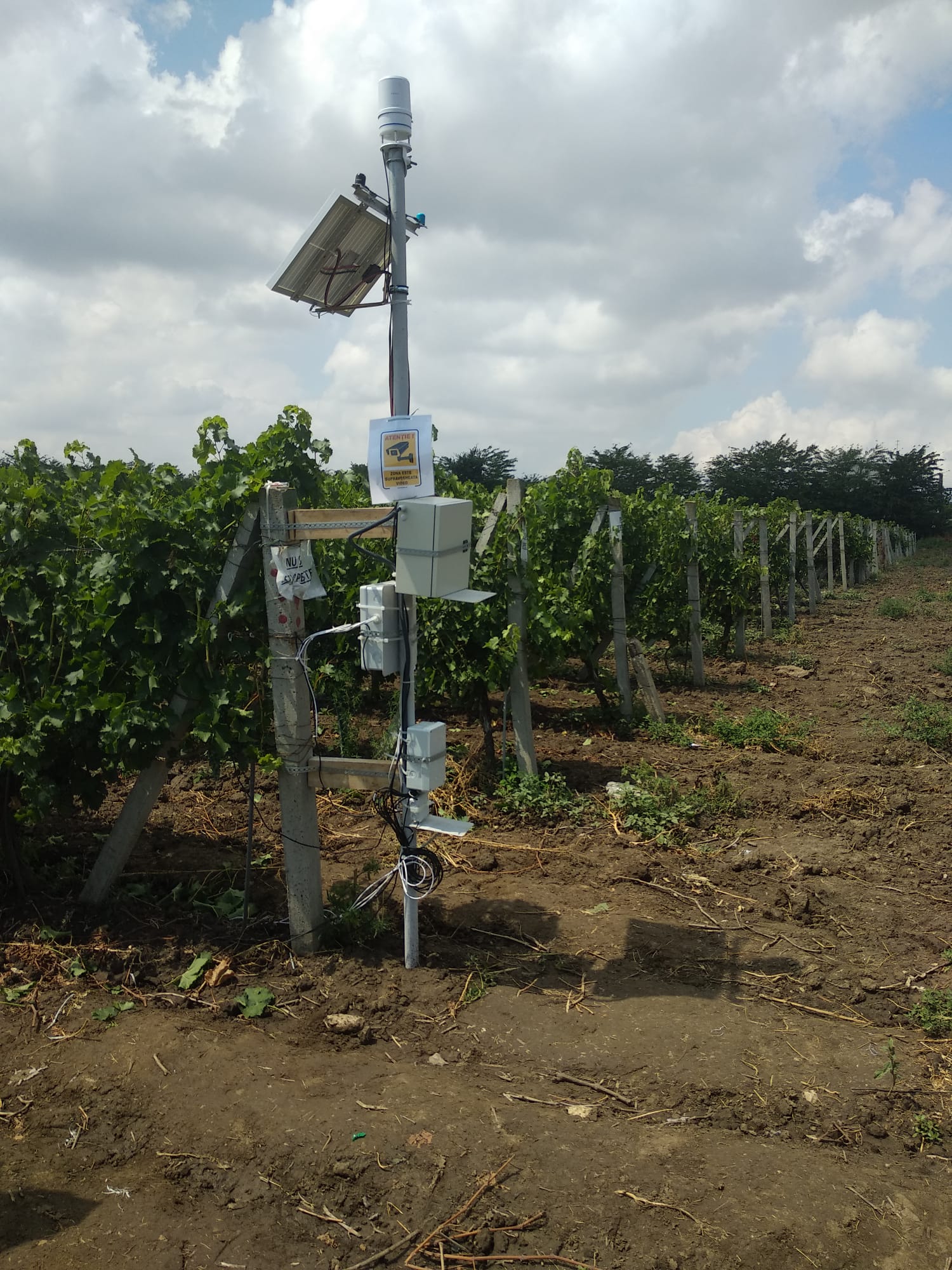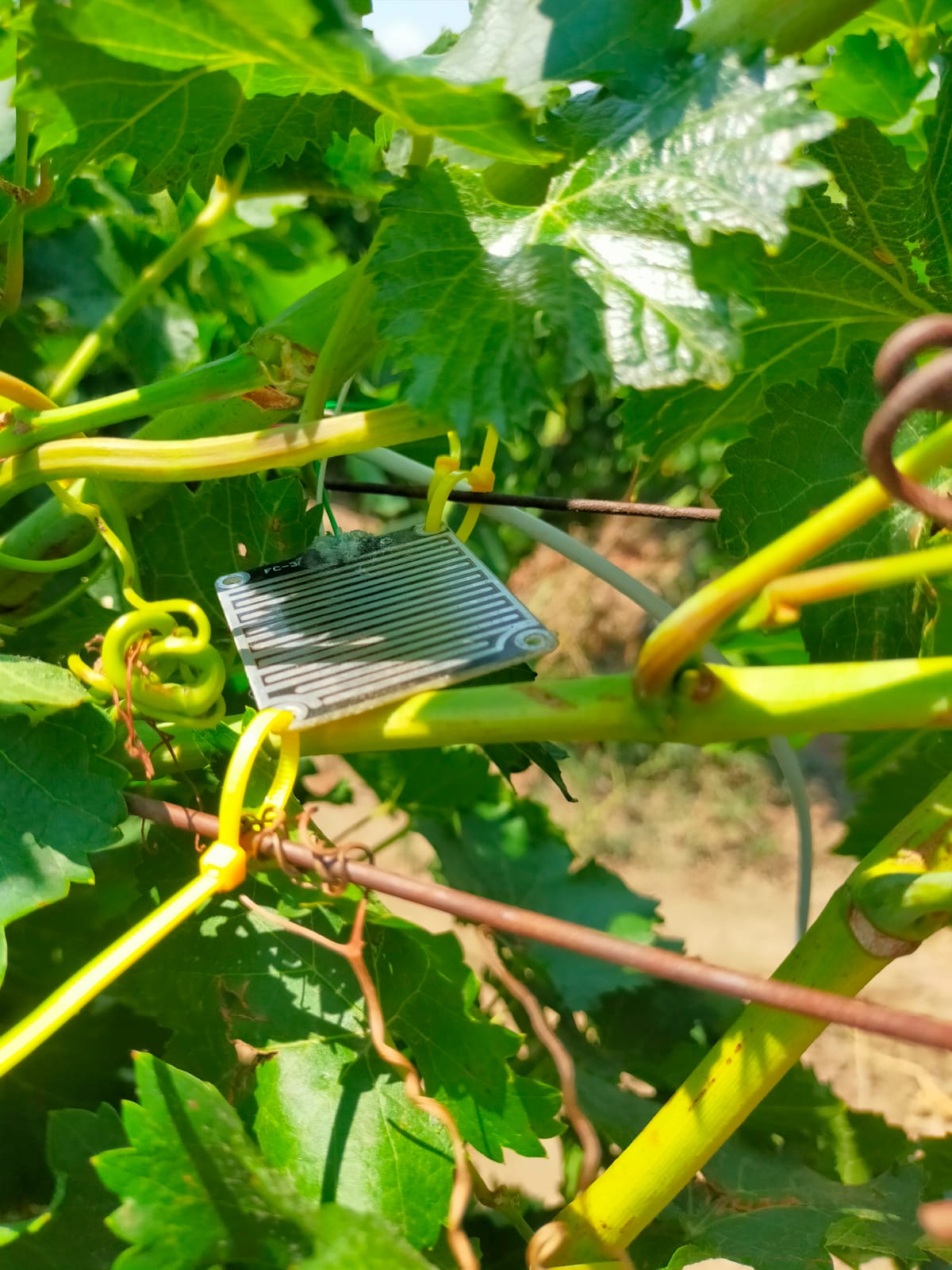
This project has received funding from the European Union’s Horizon 2020 research and innovation program
under grant agreement No 862665 ERA-NET ICT-AGRI-FOOD
Multiscale Sensing for Disease Monitoring in Vineyard Production
Financial Information
- Project code: COFUND-ICT-AGRI-FOOD-MERIAVINO-1
- Project title: Multiscale Sensing for Disease Monitoring in Vineyard Production
- Acronym: MERIAVINO
- Funding: state budget
- PN III Program name: European and International Cooperation – Subprogram 3.2 – Horizon 2020
- Project type: ERANET
- Realization period: 02/12/2020 – 02/12/2023
- Contract duration: 36 months
- Total contract value: 633.100,00 lei / 130.000,00 Euro
Of which by funding sources:
- Source 1 – from the state budget: 318,001.26 lei representing 65,298.00 euros
- Source 2 – from other attracted sources (contribution own financial): 0.00 lei representing 0.00 euros
- Source 3 – from the European Commission: 315,098.74 lei4 representing 64,702.00 euros
- The contracting authority: Executive Unit for Financing Higher Education, Research, Development and Innovation through the European International Cooperation Program
- Project manager: Associate professor PhD Eng. Mihaela Hnatiuc
Project Summary
Vine disease is a major risk for viticulture, involving economic loss, yield quality reduction and environmental impact when using chemicals for treatment. MERIAVINO project advocates a multidisciplinary approach, which is based on several scientific fields to address the problem of disease and yield estimation in vineyard.
The proposed multi-scale methodology consists of inter-combining and implementing IoT, remote sensing and big data in order to interconnect the vineyard parcels, as well as to develop a non-invasive, eco-friendly and low-cost technology for vine disease detection/warning.
With the goal of reducing economic loss of both quantity and quality, and the environmental impact, various sensors, data fusion techniques, artificial intelligence (AI) with machine learning (ML) methods will be combined along with the development of reprintable sensors for effective vineyard monitoring. The project results are then analysed and geo-visualised on compatible MobApp for end-users for decision-making and early prevention.
OBJECTIVES
Main hypothesis
Multiscale sensing approach and heterogenous data from vineyards in different countrieswill enable to develop robust decision tools based on AI through:
- H1: Intelligent acquisition methods and processing of Big Data by using dedicated software towards improving production efficiency and operating costs.
- H2: ML approach for finding data patterns enables earlier detection of the vine diseases, and the estimation of yield quality and quantity.
- H3: Earlier disease detection will help winegrowers to reduce phytosanitary chemicals.
Estimated Results
Monitoring the vines using IoT technology in the field of Research Station for Viticulture and Oenology Murfatlar, Romania
- implementation of IoT sensors in situ;
- building a network of IoT sensors;
- saving data in Cloud / FOG;
- data security testing;
- develop the models for data processing in the cloud;
- process and evaluation of collected data;
- testing the chosen models on the acquired data in situ;
- Correlation and comparison of results between partners
- Publishing the results in journals, proceeding conferences and applying for a patent
- Annual reports at the end of the stage.
SCIENTIFIC PAPERS
- B. Hnatiuc, S. Sintea, M. Hnatiuc, F. Nicolescu, Electric diagram with afdd for monitoring and protection of critical consumers, OPTIM-ACEMP 2021, IEEE XPLORE Proceeding, DOI: 10.1109/OPTIM-ACEMP50812.2021.9590013, Electronic ISBN:978-1-6654-0298-9, 2021, https://ieeexplore.ieee.org/document/9590013
- V. Lungu, B. Hnatiuc, Dielectric barrier discharge analysis from the point of view of supply voltage and reactor topology, Modern Technologies in Industrial Engineering, 23 – 26 Iunie 2021, în Eforie Nord, IOP Conference Series: Materials Science and Engineering, Volume 1182, ModTech International Conference: Modern Technologies in Industrial Engineering IX (ModTech 2021) 23rd-26th June 2021, Eforie Nord, Romania, https://iopscience.iop.org/article/10.1088/1757-899X/1182/1/012036/meta
- Alexandru-Octavian Călin, Mihaela Hnatiuc, Cătălin Jan Iov, Gesture Recognition using PYTHON, Proceeding 11th Conference on Speech Technology and Human-Computer Dialogue, IEEE Xplore, 11th Conference on Speech Technology and Human-Computer Dialogue, 13-15 september, 2021, Bucharest, Romania https://sped.pub.ro/ DOI: 10.1109/SpeD53181.2021.9587341, Electronic ISBN:978-1-6654-2786-9 13-15 Octombrie, 2021, https://ieeexplore.ieee.org/document/9587341
- Mihaela Hnatiuc, Bogdan Hnatiuc, Sorin Sintea, Simona Ghita, Aurora Ranca, Victoria Artem, Bogdan Cristian Savin, IOT technology used in vineyard monitoring, 2021 IEEE 27th International Symposium for Design and Technology in Electronic Packaging (SIITME), DOI: 10.1109/SIITME53254.2021.9663713, Electronic ISSN: 2642-7036 https://ieeexplore.ieee.org/document/9663713
- Mihaela Hnatiuc,Bogdan Hnatiuc, Aurora Ranca, Sorin Sintea, Victoria Artem,Simona Ghita, The methods for vine disease identification, 2021 IEEE 27th International Symposium for Design and Technology in Electronic Packaging (SIITME), DOI: 10.1109/SIITME53254.2021.9663713, Electronic ISSN: 2642-7036, https://ieeexplore.ieee.org/document/9663649
- B.C. Savin, Mihaela Hnatiuc, Methods of health improving using leaf image, Processing, EHB 2021, IEEE International Conference on e-Health and Bioengineering, DOI: 10.1109/EHB52898.2021.9657596, Electronic ISSN: 2575-5145 https://ieeexplore.ieee.org/document/9657596
- Mihaela Hnatiuc, Mirel Paun, Daniel Kapsamun IoT Sensors System for Vineyard Monitoring, 2022 11th International Conference on Frontiers of Intelligent Technologys, 2022, online, France, Paris, presentation, accepted to publication
- Bogdan Hnatiuc, Mirel Paun, Sorin Sintea, Mihaela Hnatiuc, Power Management for Supply of IoT Systems, CSCC 2022, 26th International Conference on Circuits, Systems, Communications and Computers, Chania, Crete Island, Greece, July 19-22, 2022, presentation, accepted to publication
- Bogdan Hnatiuc, Mihaela Hnatiuc, Sorin Sintea and Gabriel Vavilov, Detection of Parallel Electric Arc Faults by AFDD, 57th INTERNATIONAL SCIENTIFIC CONFERENCE ON INFORMATION, COMMUNICATION AND ENERGY SYSTEMS AND TECHNOLOGIES , Ohrid, Macedonia, presented and accepted to be publised.
- Simona Ghiță, Mihaela Hnatiuc, Aurora Ranca, Victoria Artem and Mădălina-Andreea Ciocan, ” Studies on the Short-Term Effects of the Cease of Pesticides Use on Vineyard Microbiome “, Book ” Vegetation Dynamics, Changing Ecosystems and Human Responsibility”, 2022, DOI: http://dx.doi.org/10.5772/intechopen.105706
- Arun Pandian; V. Dhilip Kumar; Oana Geman; Mihaela Hnatiuc; Muhammad Arif; K. Kanchanadevi, ” Plant Disease Detection Using Deep Convolutional Neural Network”, Applied Sciences, MDPI 2022-07-10 | Journal article, DOI: 10.3390/app12146982, Impact Factor, 2,838
- S.R. Sintea, B. Hnatiuc, M. Hnatiuc, V.M. Pomazan, C.C. Pomazan, Low Drop Voltage Step-Down Converter for Industrial Automation and Operation, ATOM-N 2022, presentation, accepted to publication, https://www.atom-n.ro/posters_uploads/ATOM-N2022-Conference-Program-Final.pdf
- S.R. Sintea, B. Hnatiuc, M. Hnatiuc, V.M. Pomazan, C.C. Pomazan, Audio Message IoT Devices for Industrial Automation and Operation, ATOM-N 2022, presentation, accepted to publication, https://www.atom-n.ro/posters_uploads/ATOM-N2022-Conference-Program-Final.pdf
- Planary Presentation of MERIAVINO project: Multiscale Sensing for Disease Monitoring in Vineyard Production Mihaela Hnatiuc, Victoria Artem, https://www.atom-n.ro/posters_uploads/meriavino.pdf
PARTNERS
- INSTITUT NATIONAL DES SCIENCES APPLIQUEES CENTRE VAL DE LOIRE – France
- CONSTANTA MARITIME UNIVERSITY-Romania
- RESEARCH STATION FOR VITICULTURE AND OENOLOGY MURFATLAR-Romania
- UNIVERSITY OF WEST ATTICA-Greece
- INSTITUT FRANCAIS DE LA VIGNE ET DU VIN – France
- ATOS-France
